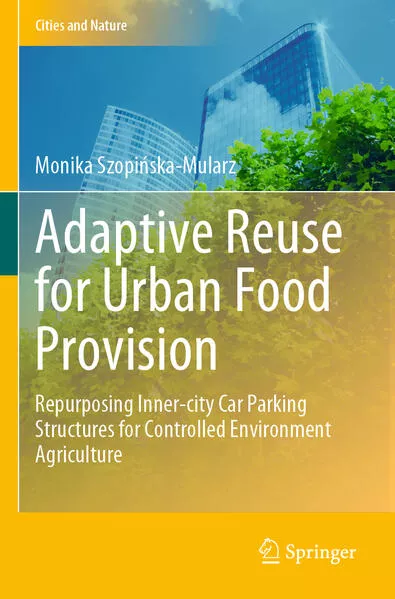
- Publikationen ca: 3
- Fragen & Antworten
Monika Szopińska-Mularz
Adaptive Reuse for Urban Food Provision
This book analyses the adaptive reuse potential of inner-city modern movement car parking structures for controlled environment agriculture systems and the contribution of such a transformation to urban development. Modern movement garages built over the last 60 years are becoming redundant due to changing mobility trends and growing environmental awareness.
Adaptive Reuse for Urban Food Provision
This book analyses the adaptive reuse potential of inner-city modern movement car parking structures for controlled environment agriculture systems and the contribution of such a transformation to urban development. Modern movement garages built over the last 60 years are becoming redundant due to changing mobility trends and growing environmental awareness.
Adaptive Reuse for Urban Food Provision
This book analyses the adaptive reuse potential of inner-city modern movement car parking structures for controlled environment agriculture systems and the contribution of such a transformation to urban development. Modern movement garages built over the last 60 years are becoming redundant due to changing mobility trends and growing environmental awareness.


